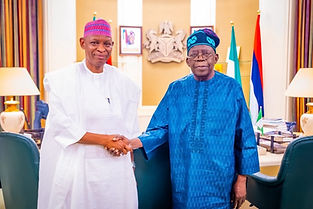
Protesters rally in Lagos during the End Bad Governance march, August 2024. (Photo: Benson Ibeabuchi/AFP via Getty Images)
Explore top pressure groups in Nigeria and how they influence politics, education, and national policy.
Published:
May 28, 2025 at 5:01:25 PM
Modified:
May 28, 2025 at 5:26:42 PM
Summary:
Pressure groups in Nigeria play a major role in pushing for political, social, and economic reforms. From student unions to trade associations, they give voice to citizens and shape government policies.
What is a Pressure Group?
A pressure group is an organized body that seeks to influence public policy and decision-making without directly seeking political power. They don’t run for elections, but they influence those who do.
These groups use lobbying, protests, media campaigns, petitions, and stakeholder meetings to press their demands.
Top Examples of Pressure Groups in Nigeria
Here are the most recognized and impactful pressure groups in Nigeria today:
1. Academic Staff Union of Universities (ASUU)
Sector: Education
Impact: Known for frequent strikes to push for better funding and conditions in public universities.
Influence: Directly shapes national conversations about education reform.
2. Nigeria Labour Congress (NLC)
Sector: Labour/Workers' Rights
Impact: Nigeria’s biggest trade union umbrella group. Fights for fair wages, pension reforms, and working conditions.
Influence: Can shut down national activities through strikes.
3. Trade Union Congress (TUC)
Sector: Trade & Industry
Impact: Represents senior civil servants and professionals. Coordinates with NLC on major national labour issues.
Influence: Engages in policy lobbying and economic pressure actions.
4. National Association of Nigerian Students (NANS)
Sector: Education/Youth
Impact: A student body that advocates for student rights, better campus welfare, and educational policies.
Influence: Mobilizes protests and media campaigns during student crises.
5. Campaign for Democracy (CD)
Sector: Civil Rights
Impact: Fights for democracy, free elections, and human rights in Nigeria.
Influence: Played a key role in Nigeria’s return to democracy in 1999.
6. Arewa Consultative Forum (ACF)
Sector: Regional Advocacy
Impact: Represents Northern Nigeria’s interests in national debates.
Influence: Influences northern bloc voting patterns and national policy debates.
7. Ohanaeze Ndigbo
Sector: Regional Advocacy
Impact: Represents Igbo interests in national issues.
Influence: A strong voice in debates around restructuring and marginalization.
8. Ijaw Youth Council (IYC)
Sector: Resource Control/Minority Rights
Impact: Defends Niger Delta interests and calls for oil revenue justice.
Influence: Vocal in national discussions on environmental justice and amnesty programs.
📢 Why They Matter
Pressure groups play a vital role in any democratic society. In Nigeria:
They give citizens a collective voice.
They hold the government accountable.
They promote transparency and reforms.
They raise awareness on neglected issues like climate change, corruption, or police reform.
🧾 Quote Highlight
Without pressure groups, many of our leaders would forget the voices of the people.” Adebayo Ojo, Civil Rights Advocate
🔚 Final Thought
As Nigeria faces tough economic, political, and social challenges, pressure groups remain essential watchdogs. Whether you agree with their methods or not, their role in shaping Nigeria's future cannot be ignored.
Keep Reading



